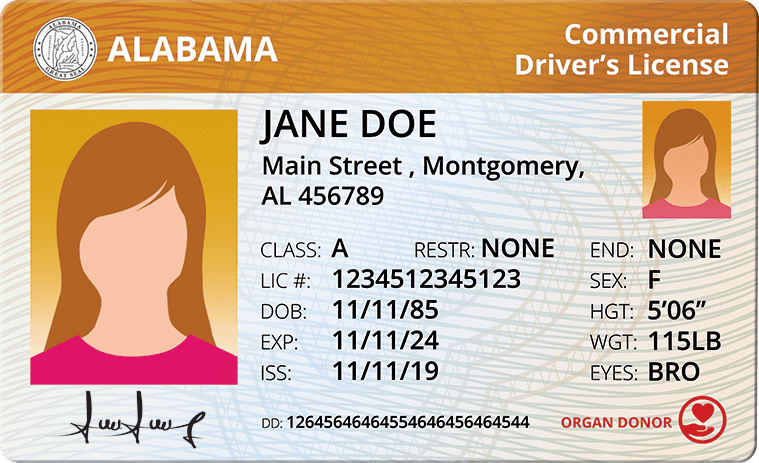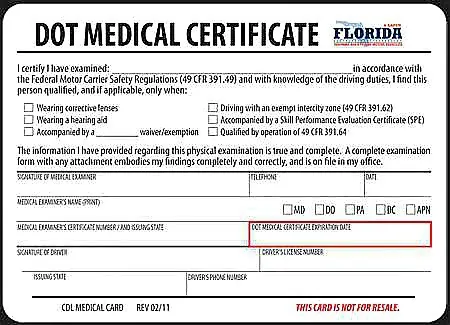Understanding an in-depth guide on how to get CDL in Alabama and acquiring your Commercial Driver’s License (CDL) should be the first and foremost step to take if you want to join the Alabama developing trucking industry. Below is the step-by-step guideline of the CDL obtaining process in Alabama, from eligibility requirements to testing through the actual issuance of your license. It doesn’t matter whether you want to focus on local routes or long hauls; understanding how to adapt with the Alabama CDL requirements will get you on the road toward a promising driving career. Now, let’s take a closer look and get you on the road!
What are the requirements for a CDL license in Alabama?
To apply for an Alabama CDL, you must meet the basic state requirements for applying:
- Minimum age: You must be at least 18 years old to get an intrastate CDL (this is driving only within Alabama), and you must be 21 years of age to apply for an interstate license.
- Residency: The applicant must also provide proof of his or her residency in Alabama.
- Driving record: Must have no violations against their driving record or multiple violations. This Agency considers reviews from the State of Alabama Department of Public Safety for violations/suspensions within the past three years.
- DOT medical card: You will be required to pass a DOT physical and provide a valid Medical Examiner’s Certificate including vision, hearing test, and blood pressure.
- Identification: A valid unexpired driver’s license and proof of identity.
- A Commercial License’s Permit – CLP is required 14 days prior to taking skills tests.
- Successful completion of Entry Level Driver Training (ELDT) – a program approved by FMCSA.
Click on our comprehensive guide about the Alabama CDL requirements to help you gain more insight and be more well-prepared for your CDL.

How to get CDL in Alabama
After ensuring all of these requirements are fulfilled, it comes to the testing of knowledge and skills then achieving your actual CDL.
Take the CDL knowledge tests
First and foremost, to get your CDL, you need to pass a series of written knowledge tests. The number of the tests totally depends on which type of endorsement and kind of CDL class you want to get. Here are the main tests:
General knowledge test
This part of the written test is a general examination based on the contents covered under the CDL manual concerning general trucking information and road safety. You must answer correctly 40 out of 50 multiple choice questions, varies on the main keys below:
- Driving safety: speed management, following distances, and road conditions.
- Vehicle inspection: tests your knowledge of pre-trip inspections, including the identification of issues in brake and tire conditions, and the overall readiness of the vehicle.
- Basic road rules: Alabama traffic laws, lane use, right-of-way rules, and signage.
- Cargo management: Deals with proper load securement, weight limits, and load stability.
- Emergency protocols: Tests your readiness for unexpected events, such as tire blowouts, skidding, or vehicle breakdown.
Endorsement test (if applicable)
The CDL endorsement test applies to drivers who intend to drive special kinds of commercial vehicles. Each one of them has its specific test on key skills and safety requirements of the particular vehicle type. In this regard, the following is a summary of common endorsements and what you should expect:
- H endorsement: covers regulations and safety practices used for carriage of hazardous materials in handling, labeling, and procedures during an emergency.
- P endorsement: outlines the safe carriage of passengers, including loading, securing passengers on board, and procedures for emergency evacuations.
- N endorsement: covers the applicant’s ability to convey liquid cargo on the dangers of surge, ways of securing the cargo, and the safety operation.
- T endorsement: covers procedures for driving double and triple trailers, including coupling and uncoupling, and handling turning and stopping distance.
- S endorsement: questions on safe driving and passenger practices tailored for school-age passengers, including emergency procedures.
- X endorsement: allows drivers to carry hazardous material in a tank, cover protocols involved with carrying hazardous materials along with carrying liquid cargo safely.
| Endorsement test | Total questions | Passing score |
| Hazardous Materials | 30 | 24 |
| Passenger Transport | 20 | 16 |
| Doubles/Triples | 20 | 16 |
| School Bus | 20 | 16 |
| Tank Vehicle | 20 | 16 |
Air brakes test (if applicable)
The CDL air brakes test applies to those driving vehicles that are equipped with air brakes. Drivers will want to make sure and pass this test because if you do not, there will be a restriction on your CDL that prevents you from driving vehicles equipped with air brakes. Some common topics are:
- Air brake system parts
- Dual air brake systems
- Inspecting air brakes
- Using air brakes
This section typically contains 25 multiple-choice questions and the correct score of 80% is considered a passing.
Combination vehicle test (if applicable)
The combination vehicle test is for drivers of combination vehicles, such as tractor-trailers. It will make sure you know what you are doing and are capable of handling the added complexities of driving vehicles made up of multiple parts. There are about 20 multiple-choice questions involved and you are expected to do correctly 80%. This section covers:
- Driving combinations
- Combination vehicle air brakes
- Antilock brake systems
- Coupling and uncoupling
- Inspecting combinations
Once passing all the required knowledge tests, a Commercial Learner’s Permit (CLP) will be issued which allows you to practice driving on the road.
Take the Alabama CDL practice test right now!
Take the CDL skills tests
When you have passed all the knowledge tests and have held your CLP for at least 14 days, you can make an appointment to take your CDL skills tests. This practical test will verify your driving skills and is divided into three main parts:
- Pre-trip vehicle Inspection: You will be required to go through the process of checking your vehicle to ensure it is roadworthy.
- Basic vehicle control: This section looks at your ability to control the vehicle in each of various driving situations: reversing, turning, and parking.
- On-road driving: You take the vehicle on the road with a qualified examiner accompanying you to observe you while you do actual driving on the road in various traffic conditions.
Receive the actual license
With both the knowledge and skills tests out of the way, it is time to get your CDL. After paying the proper fee according to the Alabama Law Enforcement Agency, Alabama’s Department of Public Safety will issue your formal CDL, and you can hit the road as a professional driver. This new license will grant you legal operation of commercial vehicles, opening a world of job opportunities in Alabama’s growing trucking industry.
FAQs
1. How much does it cost to get a CDL in Alabama?
You can expect to pay from $75 to $150 depending on how many tests and the CDL Class type you have to take. In total generally comprises an application fee, knowledge and skills test fee, and endorsements fee. For more information, access our post on how much does it cost to get CDL in Alabama.
2. Can a felon get a CDL in Alabama?
Yes, a felon can normally apply for a CDL in Alabama; however, conviction of particular crimes, especially DUI or serious traffic offenses, may prohibit you from certain endorsements or getting a CDL at all.
3. How can I get my CDL license for free in Alabama?
Some companies and organizations in Alabama will offer a portion or all of the cost of a CDL training program. Many community colleges and workforce training centers, as well as some trucking companies that require an employment contract in exchange for the training program may offer these sponsored programs.
4. Do I need a DOT physical to get a CDL permit in Alabama?
Yes, a valid DOT physical is required. You will have to obtain a Medical Examiner’s Certificate that states that you are physically fit to operate a commercial vehicle.
5. What disqualifies you from getting a CDL in Alabama?
The factors that lead to the disqualification of the applicant include poor driving records, certain convictions of crimes, and incidents of DUI or substance abuse. Health-related factors are also subject to strict disqualification rules related to safe driving based on the Alabama State regulations. Click here to gain everything you need to know about Alabama CDL disqualification.
Final thoughts
Getting a CDL in Alabama brings you to the threshold of what promises to be an exciting career full of endless possibilities in trucking. Take some time to go through each step in great detail, from knowledge exams to hands-on skills tests. The way to get your answer on how to get CDL in Alabama will not become a nightmare. With your CDL in hand, you’re not only prepared for the road ahead, but you’re also ready to join a community of professionals who keep goods moving and the economy thriving. Take a deep breath, buckle up, and see where the open road can take you!



